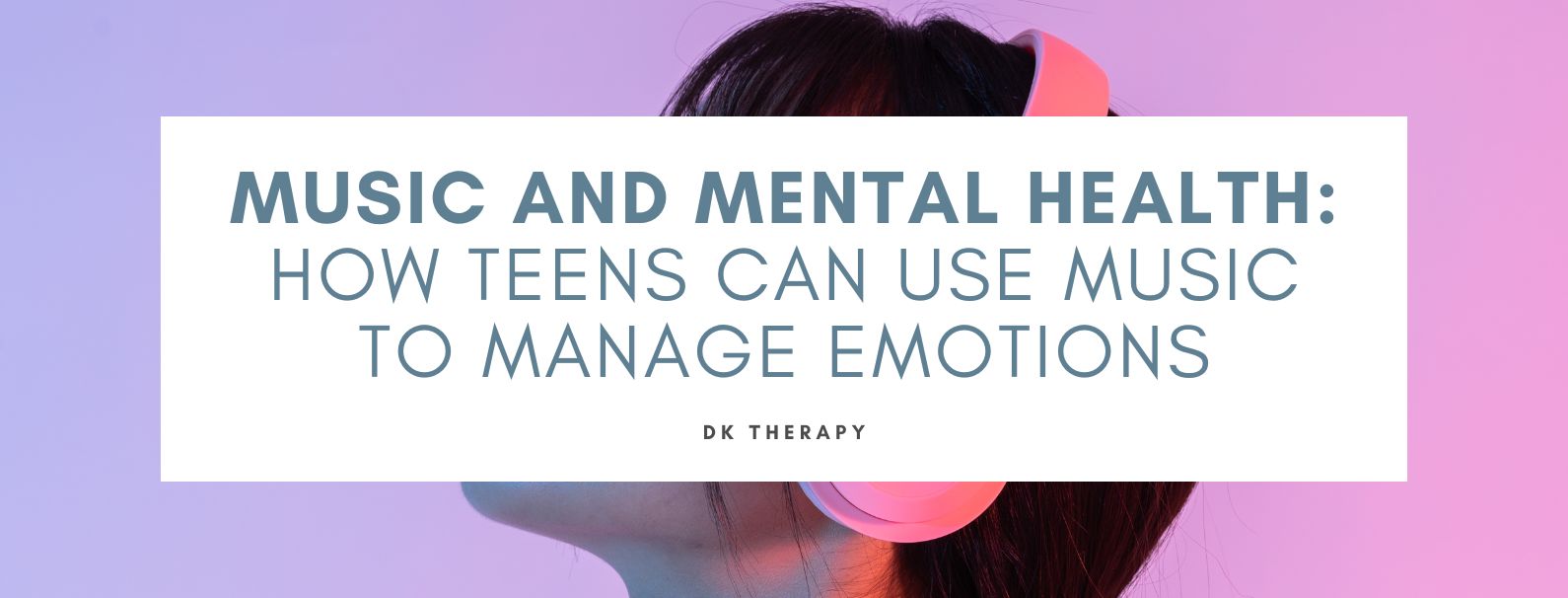
Music has always been a powerful tool for influencing mood and emotional well-being. For teens, who often experience intense emotional fluctuations as they grow, musical interests can be both a form of expression and a way to manage difficult feelings.
Let’s explore how music can help teens with mental health challenges and go over tips on how to use it effectively for emotional regulation.
The Power of Music on Emotions
 Music has a unique ability to evoke strong emotional responses. A catchy beat often lifts spirits while a slow, melancholic melody offers comfort.
Music has a unique ability to evoke strong emotional responses. A catchy beat often lifts spirits while a slow, melancholic melody offers comfort.
For teens who experience heightened sensitivity during emotional exploration, music provides a safe space for self-expression. The sounds, lyrics, and rhythms of different songs reflect their emotions whether they’re feeling joyful, angry, or overwhelmed.
Studies have shown that listening to music can have a significant impact on brain activity and emotional regulation as well. It triggers the release of neurotransmitters like dopamine, which helps elevate mood, reduce stress, and promote relaxation.
How Teens Can Use Music for Emotional Regulation
Teens often find it hard to pinpoint exactly what they’re feeling, especially during and after intense moments. One way to use music for emotional regulation is to help identify and acknowledge those feelings. By listening to specific songs that resonate with their mood, teens can better understand their emotions.
Building personalized playlists can also be a fun and effective way for teens to connect with their emotions. Encouraging young people to curate playlists that match different emotional states can provide them with a healthy way to cope with their feelings. Having ready-made playlists for specific needs can offer teens a quick and easy way to cope when they’re feeling overwhelmed.
There’s also a physical element to add to musical enjoyment. Teens who enjoy dancing or simply moving to the beat of a song can experience an emotional release that improves their mood and reduces tension. Even if they don’t consider themselves dancers, simply swaying or tapping along to the music can have a positive effect on mental health.
Finally, musical passions can also foster social connections. Many teens bond over shared musical interests, whether they’re attending concerts, discussing their favorite artists, or simply listening to and discussing music together. This sort of easygoing community can provide emotional support and reduce feelings of isolation.
Tips for Parents and Caregivers
Because music can be a powerful tool for emotional regulation, it’s important for parents and caregivers to guide teens in using it in a healthy way. Here are a few tips:
- Encourage open conversations: Ask teens about the music they enjoy and how it makes them feel. Not only does it show them you care about their interests, but it also gives you an opportunity to bond with them through discussion.
- Set boundaries around screen time: While music apps and social media platforms can be great for discovering new music, too much screen time can negatively impact mental health. Encourage a healthy balance by setting limits on screen time and encouraging face-to-face interactions.
Music is much more than just entertainment, though it serves that purpose well. It’s also a tool for emotional expression and self-care. For teens trying to make it through the complexities of adolescence, music provides a way to manage their emotions, relieve stress, and connect with others. Listening to their favorite songs, creating music, or using it to encourage exercise are just a couple of ways to enjoy the therapeutic benefits of music. By using it as a tool for mental health, teens can build greater resilience and find solace in the melodies that speak to their hearts.
If you or your teen is struggling and you’d like to work with a therapist, reach out to us at DK Therapy.




